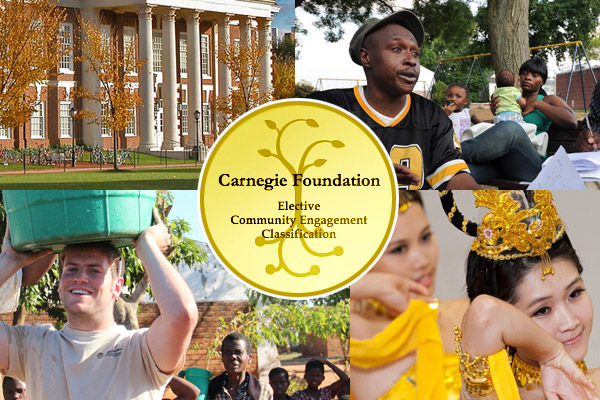UD is Officially Engaged

 Anyone can be a scientist, science can be lots of fun and — to the surprise and delight of most of the children who participated in the 2014 University of Delaware Marvelous Microbes Camp — science can be easy.
Anyone can be a scientist, science can be lots of fun and — to the surprise and delight of most of the children who participated in the 2014 University of Delaware Marvelous Microbes Camp — science can be easy.
Those were the key messages that Emily Sklar, a student in the M.Ed. in Exceptional Children and Youth 4+1 program program for secondary special education and member of the Community Engagement Task Force, hoped to instill in the youngsters who participated in the camp, which was run in cooperation with 4-H through a grant from the National Science Foundation.
Aimed at children ages 5-13, Marvelous Microbes took place in all three counties, with the New Castle County camp taking place the week of July 14 at Gauger-Cobbs Middle School and the southern Delaware camps taking place concurrently the week of July 21 at Mifflin Meadows in Kent County and the Hickory Hill Community Center in Sussex County.
The camp served many at-risk children, who Sklar said can sometimes find themselves falling behind during the school year.
“They really respond well to having us come in and dedicate our time to them,” said Sklar. “A lot of these kids are told they’re bad kids. They’re the ones acting up, they’re the ones not doing homework, they’re the ones failing tests, and having us take the time to come in and create something fun and educational for them has a huge impact.”
This is just one of the many efforts for which the University of Delaware has received the Community Engagement classification from the Carnegie Foundation for the Advancement of Teaching.
In order to be selected for the nationally recognized classification, institutions had to provide descriptions and examples of institutionalized practices of community engagement that showed alignment among mission, culture, leadership, resources and practices.
“The University of Delaware is delighted that the Carnegie Foundation has recognized our deep commitment to working with community partners to address societal issues and contribute to the public good,” said Patrick T. Harker, UD president. “Community-based experiences are woven into UD’s teaching, research and service activities—they are critical to the education of our students as civic-minded, engaged citizens.”
Founded by Andrew Carnegie in 1905 and chartered in 1906 by an Act of Congress, the Carnegie Foundation defines community engagement as “the collaboration between institutions of higher education and their larger communities (local, regional/state, national, global) for the mutually beneficial exchange of knowledge and resources in a context of partnership and reciprocity.”
More than 300 unique community partners and over 375 examples of community projects were identified during the development of the University’s application for the elective classification, which was submitted to the Carnegie Foundation in April 2014.
Read more about community-based research and engagement at the College of Education and Human Development’s Early Learning Center, Mastering Math through Music with ArtsBridge and on UDaily. You can also find opportunities at the UD Engage website.



